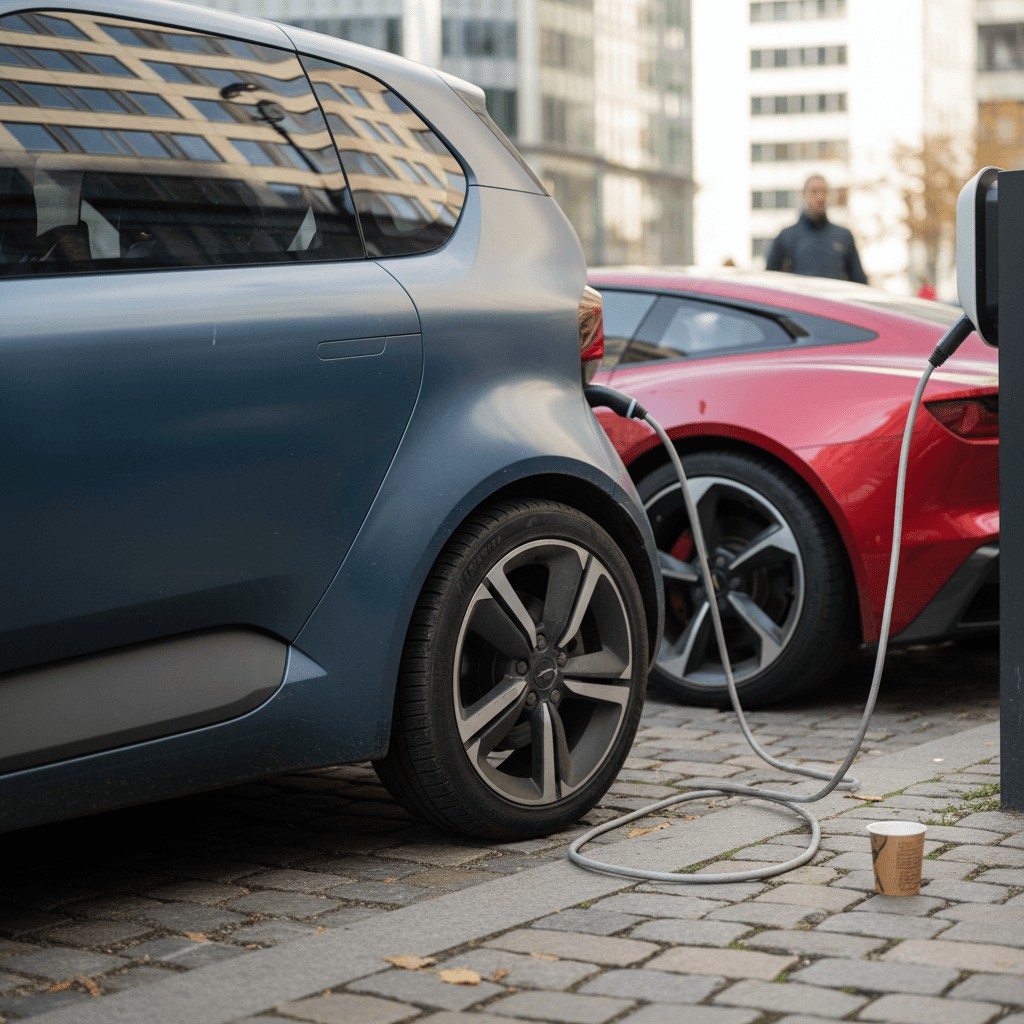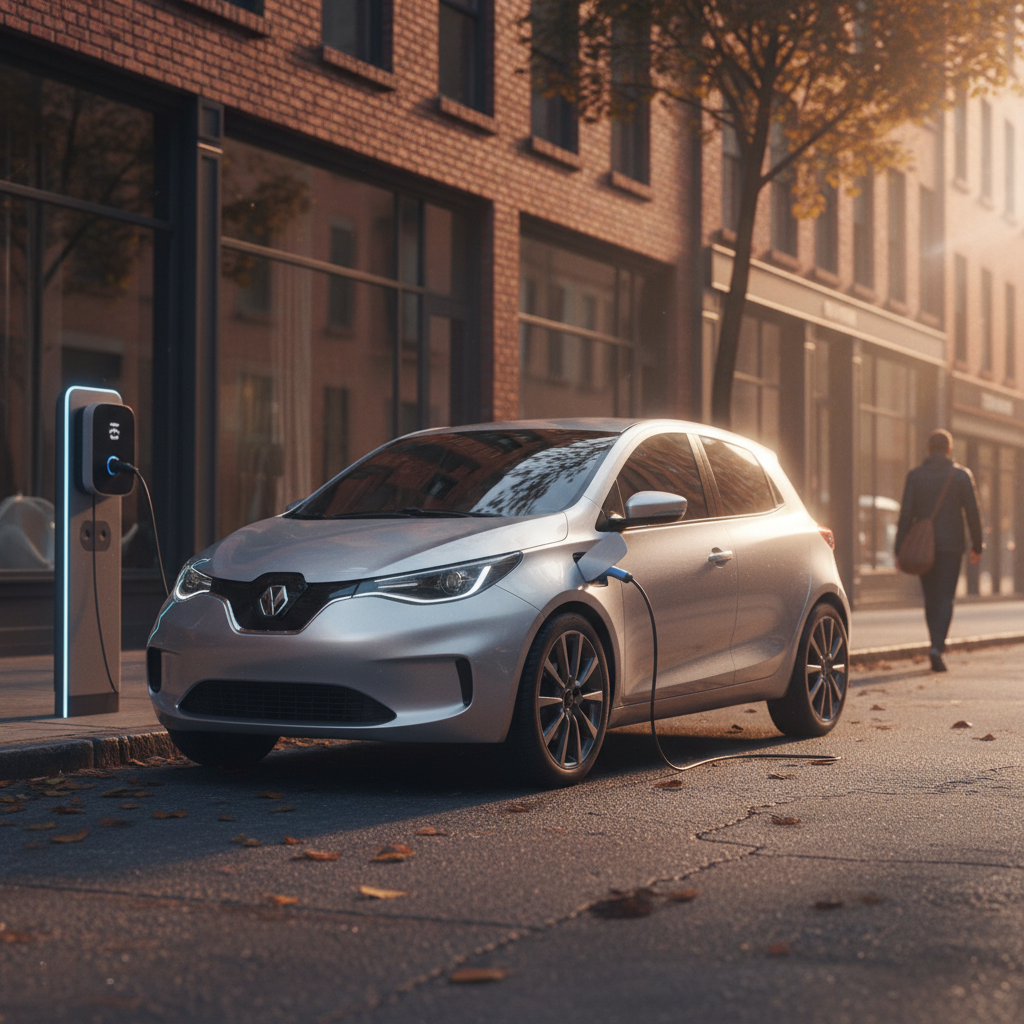You don’t Google “auto repair near me” because you’re bored. Something’s squeaking, blinking, or flat‑out broken, and you need help that’s local, honest, and reasonably priced, especially if you drive a newer hybrid or full EV. In 2025, the shop you choose can easily be the difference between a quick, fair repair and a long, expensive science experiment on wheels.
The new repair reality
Why “auto repair near me” matters more in 2025
In the golden age of carburetors and ashtrays, you picked a mechanic because they were close, cheap, and had a calendar with puppies. Today, your car is a rolling computer network, and your EV is basically a smartphone wrapped in a 4,000‑pound lithium‑ion case. The phrase “auto repair near me” isn’t just about proximity anymore, it’s about software capability, high‑voltage training, and whether the shop understands your specific drivetrain.
What auto repair really costs in 2025
Distance vs. downtime
EV vs gas: what actually needs repair?
Most marketing copy will tell you that electric cars are nearly maintenance‑free. That’s not quite true, but it is true that EVs eliminate a huge list of traditional service items. Understanding what can go wrong (and what probably won’t) makes you a tougher customer when you walk into any shop.
Gas cars: hundreds of ways to spend money
- Regular oil and filter changes
- Timing belts or chains, water pumps, spark plugs
- Fuel system parts: pumps, injectors, filters
- Complex multi‑speed transmissions and fluid service
- Exhaust system: catalytic converter, muffler, pipes
Every one of these is a potential line item on your next repair invoice.
EVs: fewer moving parts, new kinds of problems
- No oil changes, no exhaust, far fewer wear parts
- Single‑speed gearbox, rarely serviced
- Regenerative braking means pads and rotors last longer
- New failure modes: battery modules, high‑voltage wiring, onboard chargers, software glitches
- Collision and body repairs can be more complex and costly
For EVs, the scariest repairs tend to be rare but expensive. Routine stuff is usually cheaper.
Follow the maintenance schedule, not myths
Types of auto repair shops near you
When you search for “auto repair near me”, you’re really looking at a loose ecosystem of very different businesses. Knowing who does what helps you route your car to the right stage door.
Four main kinds of “auto repair near me”
Same search box, very different capabilities
Dealer service
Best for warranty work, recalls, and brand‑specific software updates. Often pricier, but they’ll have OEM tools and training, especially important for newer EVs and hybrids.
Independent general shop
Your classic neighborhood mechanic. Great for brakes, tires, suspension, fluids, and many drivability issues on gas cars and older hybrids.
EV & hybrid specialist
Shops with high‑voltage certifications and insulated tools. Ideal for battery diagnostics, inverter issues, DC‑fast‑charging faults, and EV‑specific cooling problems.
Body & collision shops
Where you go after an accident. For EVs, look for shops approved by your manufacturer, they’ll know how to safely handle damaged battery packs.

How to choose the right “auto repair near me”
Algorithms don’t drive your car; humans do. So treat the search results like a starting point, not a verdict. Before you hand over the keys, do five quick checks.
5‑step checklist for vetting a local shop
1. Read reviews beyond the star rating
Skim the most recent reviews and filter for your vehicle type. You’re looking for specific mentions like “fixed my hybrid battery cooling issue” or “great with late‑model EVs,” not just “nice waiting room.”
2. Ask about certifications and training
For any modern car, especially EVs, ask if techs have ASE or brand certifications, and whether anyone on staff is trained on high‑voltage systems. If they stumble on that question, keep scrolling.
3. Confirm equipment and software access
Good shops invest in factory‑level scan tools, alignment racks, and EV‑safe lifts. If you drive a Tesla, Hyundai, or Ford EV, ask how they perform diagnostics and software updates.
4. Get a written estimate and labor rate
Insist on a printed or emailed estimate with parts, labor hours, and shop fees separated. Comparing labor rates between “auto repair near me” options will tell you who’s realistic and who’s fishing.
5. Test their communication style
Call or message the shop. How fast do they respond? Do they explain things in plain language? The way they talk to you now is how they’ll talk to you when something goes wrong.
Where Recharged fits
Finding EV‑friendly auto repair near you
EVs don’t need oil changes, but they absolutely need competent service. The problem is, not every shop that says “we work on EVs” is ready for anything beyond tire rotations and cabin filters. Here’s how to separate the real specialists from the dabblers.
- Use search terms like “EV auto repair near me”, “hybrid specialist,” or “Tesla certified body shop,” not just “mechanic.”
- Check your automaker’s website for certified collision and service centers, especially for high‑voltage or structural repairs.
- Look for photos of EVs in the shop on their website or socials, lifts, charging equipment, and insulated tools are all good signs.
- Ask how often they see your specific model. A shop that services your brand weekly will be sharper than one that’s “seen a few.”
- For Teslas, many routine issues can be handled by mobile service, but independent shops are catching up fast for out‑of‑warranty work.
Do not let just anyone poke your battery pack
Common repairs and what they really cost
Nobody likes surprises at the counter. While prices vary by region, these ballpark figures can help you sanity‑check estimates from local shops, gas or electric.
Typical repair costs: gas vs EV (2025 ballparks)
Use these ranges as conversation starters with shops, not as quotes carved in stone.
| Repair / Service | Gas vehicle typical range | EV / hybrid typical range | Notes |
|---|---|---|---|
| Oil & filter change | $60–$110 | N/A | EVs don’t need this at all, one of the cleanest savings. |
| Brake pads & rotors (axle) | $300–$600 | $250–$550 | Regenerative braking often means fewer replacements on EVs. |
| 12V battery replacement | $180–$350 | $200–$400 | Both drivetrains still use a 12V system that can fail unexpectedly. |
| Suspension work (pair of struts) | $600–$1,200 | $600–$1,200 | Weighty EVs can stress suspension sooner on rough roads. |
| Check‑engine / warning‑light diagnosis | $120–$200 | $140–$250 | Expect higher rates if EV‑specific diagnostic software is needed. |
| High‑voltage battery module repair | N/A | $2,000–$8,000+ | Still rare, often handled under warranty; replacement packs are pricier. |
| Collision repair (moderate damage) | $2,500–$6,000 | $3,500–$9,000+ | EV body repairs can run higher and take longer due to parts and safety protocols. |
Actual costs will vary by brand, location, and parts availability.
Operating costs vs one‑off repairs
Used EVs: repair risks, rewards, and battery health
The best deal in the car world right now is often a used EV. Prices on many models have fallen sharply in the last couple of years, and the battery tech has aged better than the headlines suggest. But going cheap on the purchase only to get burned on repairs is a very 2020s way to save money.
Why used EVs can be brilliant
- Steep initial depreciation means lower purchase prices for you.
- Many still have years left on the original 8–10 year battery warranty.
- Lower routine maintenance costs than an equivalent gas car.
- Perfect city runabouts: instant torque, no gas stops, quiet commuting.
Where buyers get blindsided
- Unknown battery health or fast‑charging abuse by previous owners.
- Out‑of‑warranty tech issues: onboard chargers, infotainment, sensors.
- Collision history that involved the battery pack or high‑voltage wiring.
- Local shops that aren’t ready to diagnose complex EV faults.
Use data, not vibes, when buying a used EV
DIY vs shop: what you should and shouldn’t do
YouTube has convinced millions of people they can fix anything with a socket set and an energy drink. Reality, and 400 volts of stored energy, begs to differ. There’s still plenty you can do yourself, but you need a bright line between safe DIY and “please hand that back to the professional.”
Where you can save money (and where you shouldn’t)
EV or gas, the line is safety and complexity
Generally safe DIY
- Wiper blades, cabin air filters
- Tire pressure checks and rotations (with proper jack points)
- 12V battery replacement (if you follow the procedure)
- Cleaning sensors and cameras carefully
Proceed with caution
- Brake pad replacement on EVs (regen quirks, electronic parking brakes)
- Suspension work, struts and control arms can be under tension
- Minor trim and interior electronics
When in doubt, at least pay for a pro inspection.
Absolutely shop‑only
- Any high‑voltage wiring or battery work
- Airbag, seat‑belt, or crash‑safety systems
- Structural and frame repairs
- Software coding for safety‑critical modules
The wrong move here can make the car unsafe even if the dash is quiet.

FAQ: “Auto repair near me” for EV and gas owners
Frequently asked questions
Bottom line: shop smart, drive cheaper
When you type “auto repair near me”, you’re not just asking a search engine for directions, you’re choosing who gets to touch one of the most complex and expensive objects you own. For gas cars, the wrong choice means a few extra oil changes and maybe a misdiagnosed misfire. For EVs, the wrong hands on a high‑voltage system or damaged battery can turn into weeks of downtime and a five‑figure bill.
The playbook is simple: understand how your car actually fails, pick shops that prove they understand your drivetrain, get everything in writing, and save the high‑risk work for people with the right tools and training. And if you’re staring down an ugly estimate on an aging gas car, consider stepping sideways into a used EV with verified battery health instead of pouring more money into the past. That’s where a fully transparent marketplace like Recharged can turn a dreaded repair search into the start of a smarter ownership story.

